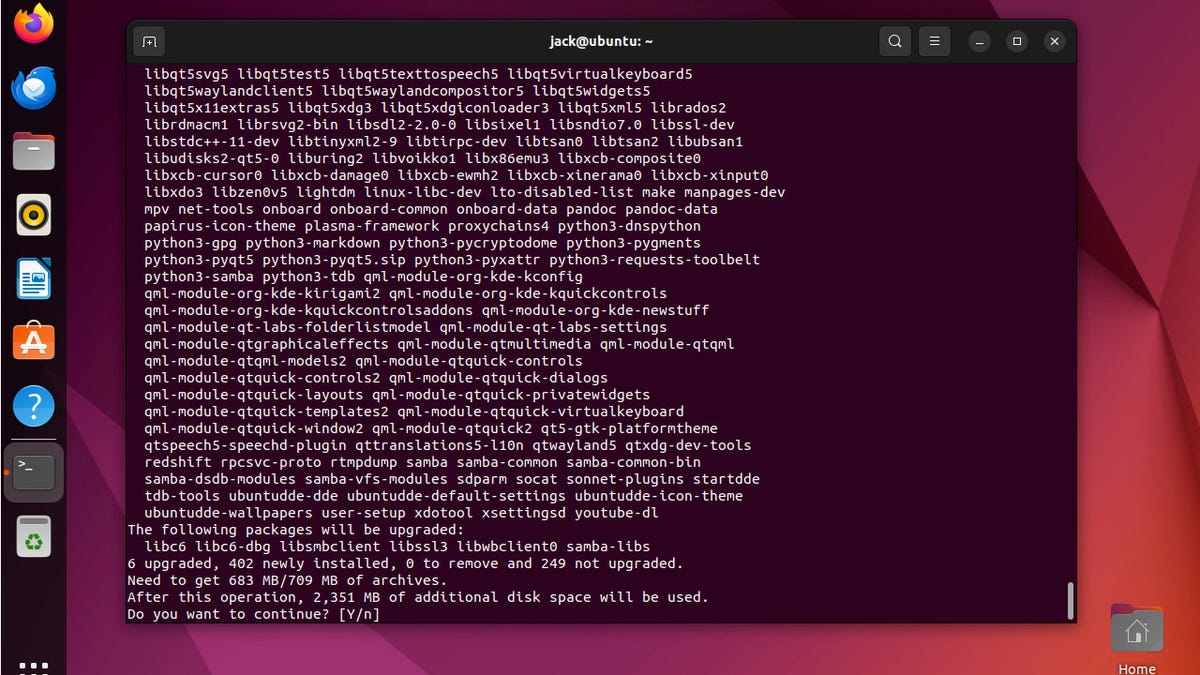
Key Takeaways:
Revamp Your Linux Desktop with a Refreshing Makeover: Step-by-Step Guide Included!
Linux is an amazing operating system that offers excellent customization options to its users. By revamping your Linux desktop, you can not only enhance the visual appeal but also improve productivity by organizing and personalizing your workspace.
A Fresh Start: Preparing for the Makeover
Before diving into the revamp process, it’s important to back up your files and settings. This will ensure that you can revert to the previous state if something goes wrong.
Once you’ve backed up your data, make sure you have a stable and reliable internet connection. Additionally, familiarize yourself with the package management system used in your Linux distribution. This knowledge will come in handy when it’s time to install new themes, icons, or packages.
Choosing a Distinctive Desktop Environment
One of the first steps in revamping your Linux desktop is selecting a desktop environment (DE) that aligns with your preferences. There are various options to choose from, including GNOME, KDE, XFCE, Cinnamon, and MATE.
Each DE has its own unique graphical interface, functions, and features. It’s crucial to select a DE that suits your workflow and aesthetic preferences. Take some time to explore the different options and settle on the one that resonates with you.
Installing the Chosen Desktop Environment
Installing a new desktop environment is typically straightforward. Most Linux distributions allow you to install additional DEs alongside the default one.
For example, if your default DE is GNOME and you want to try out KDE, you can simply install the relevant packages, log out of your current session, and choose the new DE from the login screen.
Additionally, you can fully replace your current DE with a new one if you desire a completely fresh start.
Making It Your Own: Personalization and Customization
With your new DE installed, it’s time to add a personal touch to your desktop.
Choosing a Stunning Wallpaper
The wallpaper is one of the first things you notice when you start up your computer. A beautiful wallpaper can instantly elevate your desktop’s appearance.
There are numerous websites where you can find high-quality wallpapers for free. Consider selecting an image that reflects your personality or interests. Alternatively, you can use your own photos or creations.
Customizing Themes and Icons
Along with a captivating wallpaper, themes and icons play a significant role in transforming the look and feel of your Linux desktop.
Many desktop environments offer built-in theme management options. Explore the available themes and select one that suits your taste. Pair it with complementary icons to create a visually cohesive desktop layout.
Tweaking Appearance Settings
Most desktop environments allow you to further customize the appearance settings. Adjusting aspects such as font style and size, window decorations, and desktop effects can greatly enhance the overall experience.
Take some time to experiment with different settings and find the perfect balance between aesthetics and usability.
Optimizing for Productivity and Efficiency
The final step in revamping your Linux desktop is maximizing productivity and efficiency through useful tools and features.
Installing Productivity Tools
Linux offers countless productivity tools that can significantly improve your workflow. Depending on your needs, you can consider installing applications such as:
- Text editors like Sublime Text or Visual Studio Code
- Task management software like Todoist or Trello
- Note-taking apps such as Evernote or Simplenote
- Development environments for programming
Adding Convenient Shortcuts and Widgets
Desktop environments often provide options for placing shortcuts and widgets on your desktop or taskbar. This allows you to quickly access frequently used applications or essential system information.
Consider adding shortcuts to your favorite applications or tools. Additionally, widgets such as weather forecasts, system monitors, and calendars can be both functional and visually appealing.
Streamlining Your File Organization
A well-organized file system can save you time and frustration in the long run. Take advantage of the file management tools provided by your desktop environment.
Create folders and subfolders to categorize your files accordingly. Utilize descriptive names and consider establishing a logical hierarchy to facilitate easy navigation.
FAQs
Conclusion
Revamping your Linux desktop offers a fantastic opportunity to explore, experiment, and customize your digital workspace. From selecting the perfect desktop environment to personalizing themes and icons, every step enhances the visual appeal and functionality of your Linux experience.
With the help of this step-by-step guide, you can embark on a refreshingly rewarding journey toward a revamped Linux desktop that perfectly aligns with your preferences and workflow.
Source: insidertechno.com